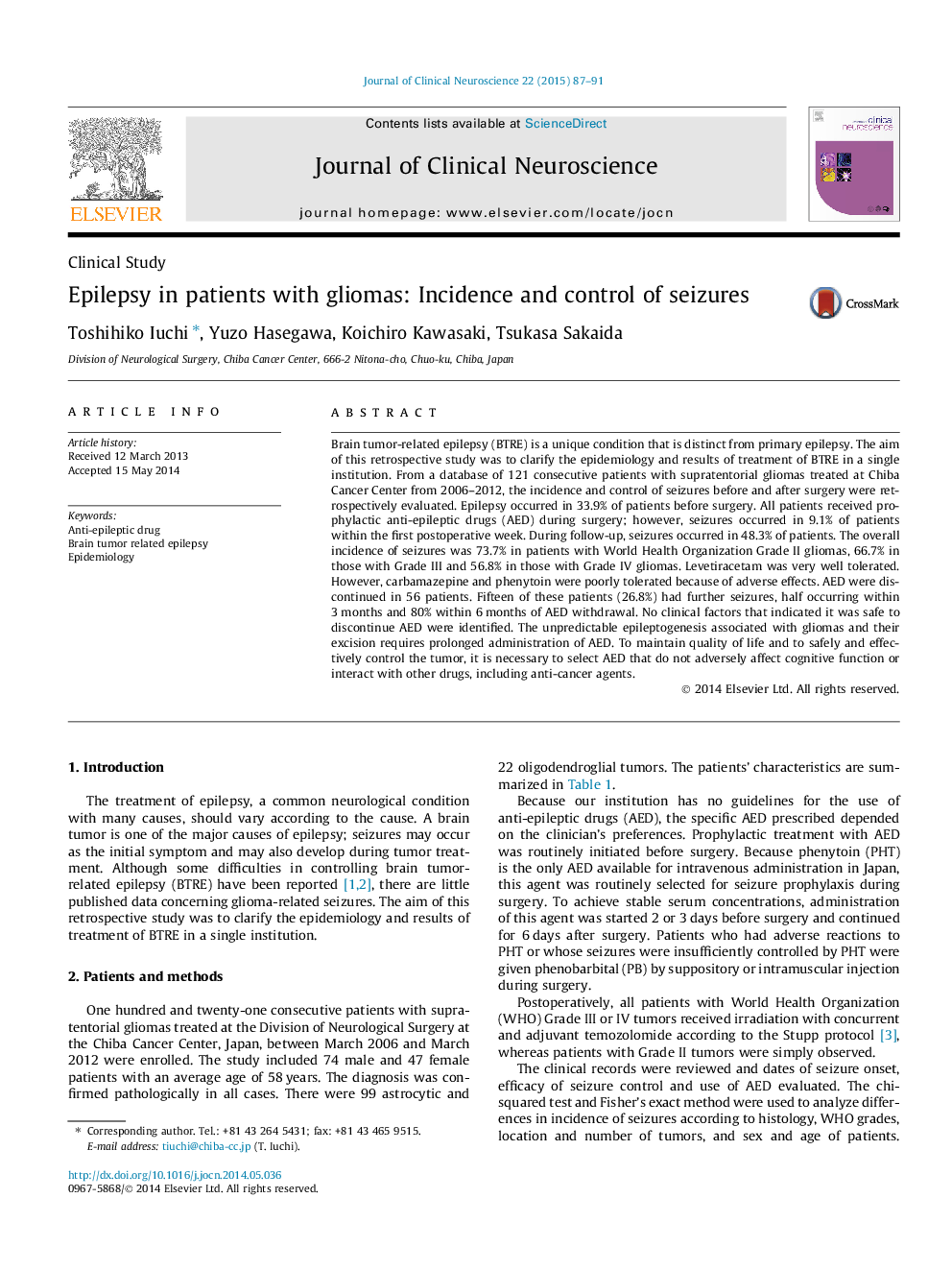| Article ID | Journal | Published Year | Pages | File Type |
|---|---|---|---|---|
| 3058969 | Journal of Clinical Neuroscience | 2015 | 5 Pages |
Brain tumor-related epilepsy (BTRE) is a unique condition that is distinct from primary epilepsy. The aim of this retrospective study was to clarify the epidemiology and results of treatment of BTRE in a single institution. From a database of 121 consecutive patients with supratentorial gliomas treated at Chiba Cancer Center from 2006–2012, the incidence and control of seizures before and after surgery were retrospectively evaluated. Epilepsy occurred in 33.9% of patients before surgery. All patients received prophylactic anti-epileptic drugs (AED) during surgery; however, seizures occurred in 9.1% of patients within the first postoperative week. During follow-up, seizures occurred in 48.3% of patients. The overall incidence of seizures was 73.7% in patients with World Health Organization Grade II gliomas, 66.7% in those with Grade III and 56.8% in those with Grade IV gliomas. Levetiracetam was very well tolerated. However, carbamazepine and phenytoin were poorly tolerated because of adverse effects. AED were discontinued in 56 patients. Fifteen of these patients (26.8%) had further seizures, half occurring within 3 months and 80% within 6 months of AED withdrawal. No clinical factors that indicated it was safe to discontinue AED were identified. The unpredictable epileptogenesis associated with gliomas and their excision requires prolonged administration of AED. To maintain quality of life and to safely and effectively control the tumor, it is necessary to select AED that do not adversely affect cognitive function or interact with other drugs, including anti-cancer agents.
